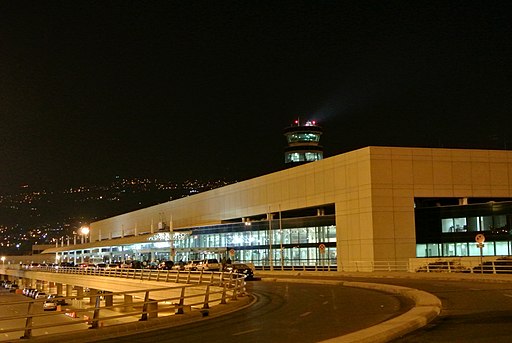Disclaimer: This is not an objective movie review, I am not Anis Tabet and you will not get a professional opinion on the cinematographic qualities and shortcomings of the movie.
I watch a lot of movies and consequently, I have become quite desensitized by movie trailers in general. I am also a fan of Lebanese movies, but not necessarily the ones that everyone swoons over. For example, I loved Taxi Ballad way more than any of Nadine Labaki's flicks.
Many who have met me, or read my blog, know how critical I am of stereotypes, especially the very Yippeekayay-ish approach to the proverbial "joie de vivre" lie that we enjoy telling ourselves in Lebanon.
So when I first caught a glimpse of the Heritages trailer in some pre-movie session, I was reluctant on what to make of it: Is it another sob-story on the struggle that many Lebanese-born must undergo or just another cheesy attempt at glorifying feelings of nostalgia for a Land that continuously keeps offering less and less to its natives? It was neither.
On the pre-screening night, I managed to steal a few moments with Philippe Aractingi and we briefly exchanged some ideas which got me even more psyched to see how he had placed those ideas onto film.
I was happy to see that this filmmaker did not slip into every cliche that's been thrown our way, about being the greatest place to live in the world, but instead offered an honest, accurate and enjoyable storytelling experience from his own perspective, while basing it on his own family's past and present, without denying his love for the country he was born into.
The richness of imagery, the candor of the characters and honesty of emotions made me feel privileged to have been given a front-seat ride into this visual autobiography and the plethora of emotions thrown at the spectator along the way.
Lebanese cinema has recently brought us many choices and styles: the touching, the smooth, the badly executed, the same old story and even the doubled-monosyllabic comedies. Far from all that, Heritages stands alone as an honest witness of a person's love and struggle with a country that binds you to it and still pushes you away until you feel like being on the edge of a yo-yo toy.
Heritages is a must-see movie for everyone: the disappointed idealist, the chronic nostalgic, the wannabe immigrant and most importantly the delusional patriotic narcissistic. It's a hangover cure, sugarcoated with honesty and warmth emanating from the lives of a very honest family somewhere between Beirut and Paris.
This movie should make it to the official school syllabus as a valuable educational tool for the young and impressionable minds that, so far, seem bound to repeat the same experiences of their parents, and their parents before them. Perhaps a powerful wake-up call like this might shake the country out of its unpleasant version of Groundhog Day but then again like I started by saying: I watch too many movies.
I watch a lot of movies and consequently, I have become quite desensitized by movie trailers in general. I am also a fan of Lebanese movies, but not necessarily the ones that everyone swoons over. For example, I loved Taxi Ballad way more than any of Nadine Labaki's flicks.
Many who have met me, or read my blog, know how critical I am of stereotypes, especially the very Yippeekayay-ish approach to the proverbial "joie de vivre" lie that we enjoy telling ourselves in Lebanon.
So when I first caught a glimpse of the Heritages trailer in some pre-movie session, I was reluctant on what to make of it: Is it another sob-story on the struggle that many Lebanese-born must undergo or just another cheesy attempt at glorifying feelings of nostalgia for a Land that continuously keeps offering less and less to its natives? It was neither.
On the pre-screening night, I managed to steal a few moments with Philippe Aractingi and we briefly exchanged some ideas which got me even more psyched to see how he had placed those ideas onto film.
I was happy to see that this filmmaker did not slip into every cliche that's been thrown our way, about being the greatest place to live in the world, but instead offered an honest, accurate and enjoyable storytelling experience from his own perspective, while basing it on his own family's past and present, without denying his love for the country he was born into.
The richness of imagery, the candor of the characters and honesty of emotions made me feel privileged to have been given a front-seat ride into this visual autobiography and the plethora of emotions thrown at the spectator along the way.
Lebanese cinema has recently brought us many choices and styles: the touching, the smooth, the badly executed, the same old story and even the doubled-monosyllabic comedies. Far from all that, Heritages stands alone as an honest witness of a person's love and struggle with a country that binds you to it and still pushes you away until you feel like being on the edge of a yo-yo toy.
Heritages is a must-see movie for everyone: the disappointed idealist, the chronic nostalgic, the wannabe immigrant and most importantly the delusional patriotic narcissistic. It's a hangover cure, sugarcoated with honesty and warmth emanating from the lives of a very honest family somewhere between Beirut and Paris.
This movie should make it to the official school syllabus as a valuable educational tool for the young and impressionable minds that, so far, seem bound to repeat the same experiences of their parents, and their parents before them. Perhaps a powerful wake-up call like this might shake the country out of its unpleasant version of Groundhog Day but then again like I started by saying: I watch too many movies.










